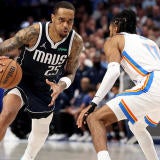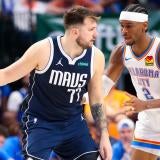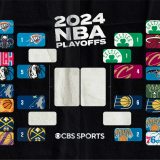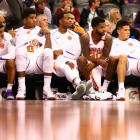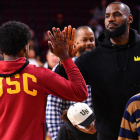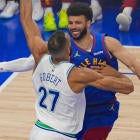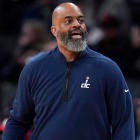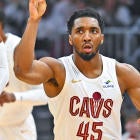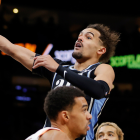The NBA season has been back for just about a week, and already the Phoenix Suns are a complete and total disaster. Sunday, Eric Bledsoe may have demanded a trade on Twitter. Coach Earl Watson got fired shortly after. That came after Lonzo Ball made a complete joke of their defense. Everything that could wrong in Phoenix has gone wrong.
Of course, this isn't something that happens out of the blue. What's happening to the Suns has built up over an extended period of time with Watson's firing and Bledsoe's tweet being the boiling point. The best way to find the roots is to back three years and look at each individual event that happened to drive them.
Offseason 2014: The 48-win fallout
The Suns' 2013-14 season was really fun -- the Suns finished 48-34, one game out of the postseason -- and showed that a lot of players Phoenix had were pretty good. Jeff Hornacek looked like an excellent coach. Goran Dragic won Most Improved Player while thriving next to fellow point guard Bledsoe, and they almost made the playoffs.
That success was enough for them to buy in on the group they already had -- the same one that had been considered one of the league's worst a year earlier. The Suns signed Isaiah Thomas (on a great contract) that gave them three point guards as arguably their three best players. That fall, they also convinced the Morris twins to take discounts in a unique, unofficially joint contract extension so the two could play together.
Feb. 18, 2015: The Dragic demand
Smoke started to rise out of Phoenix when Dragic demanded a trade. A lot of it had to do with the weird three point guard lineups, but Dragic gave a statement in his trade demand that sounded odd.
"I don't trust them anymore," Dragic said following Wednesday's practice session. "It happens too many times. Two, three times.
"They give promises, OK. It's hard. But at the same time, I wish them all the best. They were great to me the past five years. I'm always going to have a good memory about Phoenix fans and the city. I just hit that point of my career that it's better for me and my family to move on."
Players wanting to leave situations that aren't great isn't uncommon, but to say he couldn't trust the Suns anymore was the first sign of what was up ahead. Dragic had lost trust in the front office and slowly more of those around him would as well.
Feb. 19, 2015: The PG trades
Thomas has recently said that he knew Phoenix wasn't a good choice for him at the time, but the strange deadline deal to ship Thomas to the Celtics was a stunner. The Suns already had met Dragic's request, shipping him to the Heat in a decent deal that cleared out playing time and room for Thomas. But instead of buying in on the player they had just signed, the Suns flipped him for the Cavaliers' 2016 pick (which they later traded).
Thomas went on to become a star in Boston, while the Suns scrapped to replace his and Dragic's production. They brought in Brandon Knight from Milwaukee -- in the process, giving up a valuable future Lakers pick -- and tried to build more around Bledsoe. The team sputtered and finished with 39 wins.
July 2015: The Aldridge pursuit
The Suns went into the offseason with some cap space and a big agenda: They'd try to make a run at the second-best free agent who seemed likely to change teams, LaMarcus Aldridge. But they didn't quite have enough space.
After convincing the Morris twins that they were taking a discount deal to continue to play together, the Suns included Marcus Morris in a salary-cutting trade with the Pistons. His comments about the team afterward weren't positive:
"Everybody knew how bad I wanted to play with my brother," Marcus Morris said. "Phoenix knew. For them to trade me without consent or telling or anything like that was kind of like a, I would say slap in the face, because of the contract I took from those guys and the money I took from them. That was kind of a slap in the face."
Markieff Morris, whom management had praised as a core piece of the future but who also plays the same position as Aldridge, was similarly upset. Aldridge signed with the Spurs.
Dec. 28, 2015: The first firings
The Suns started the 2015-16 OK, at 7-5. Then a 5-15 run left them at 12-20 and began to put the writing on the wall for Hornacek's future.
The Suns are firing assistant coaches Mike Longabardi and Jerry Sichting, league sources tell Yahoo. Jeff Hornacek future unclear.
— Adrian Wojnarowski (@wojespn) December 28, 2015
The move left Phoenix without its two most experienced assistants, but it was cheaper than firing a head coach.
Feb. 1, 2016: The Hornacek firing
The inevitable came to be after a really ugly run. The Suns were 14-35 when Hornacek was fired. With his top two assistants already axed more than a month earlier, options to run the team short term were limited.
Earl Watson was named interim head coach. He had retired as a player less than two years prior and only had one full season as an NBA Development League assistant under his belt. But he was popular with players in a fraying locker room.
Feb. 18, 2016: The other Morris trade
The Suns had to finish what they started in the offseason. They finally sent a disgruntled Markieff Morris, who had demanded a trade himself, on his way to the Wizards. Morris' end with the Suns featured him throwing a towel at Jeff Hornacek and getting in a shoving match with Archie Goodwin.
Markieff said mostly good things about Phoenix after the trade. His brother was blunt.
"Personally, I think he did a lot for Phoenix. He took a lot of sacrifices for Phoenix. For them to do such a thing, I feel like they backstabbed him," Marcus Morris told The Vertical. "I think if they had just reached out to him, reached out to both of us and said, 'Listen, this is our direction. We don't think this is going to work.' We would understand, that's what has to happen but by the fact that they didn't do that, it made it worse. … He just didn't want to be there. He didn't feel the vibe."
via The Vertical
April 19, 2016: The Watson hire
Despite finishing the season with a 9-24 record, the Suns removed Watson's interim tag. He was reportedly a favorite among Suns players, and Phoenix was looking for any kind of stability at this point. He also reportedly as a cheaper hire than many of the offseason's other new coaches.
However, while they chose to bring in Watson full time, they knew a rebuild was on the way.
October 2017: The disaster sequence
The 2016-17 Suns season was mostly uneventful. The Suns were young, but they had talent and a potential leading scorer in Devin Booker, who had a 70-point game. They made a few small roster changes, the primary focus being on getting even younger.
They may have gone too far. The Suns lost their 2017-18 season-opener in record-breaking fashion, then got blown out two more times before Watson was fired.
Veterans Tyson Chandler and Bledsoe -- the only two players with any tangible experience on the roster -- quit on the season before it even began. They just couldn't be bothered to put in the effort.
I still had this in my video roll from last night, while people are praising Lonzo, my God the Suns defense is horrendous. pic.twitter.com/MsXBI9Cx69
— gifdsports (@gifdsports) October 21, 2017
When this type of culture enters a roster, there is no saving the coach.
However, Watson is mostly a fall man. He represents every mistake and wrong decision Phoenix has made since they bought in on that 48-win team. The Suns angered players, made bad culture decisions and couldn't decide if they wanted to be tanking or trying to win. This was the eventual end point.
The Suns have played three games.









